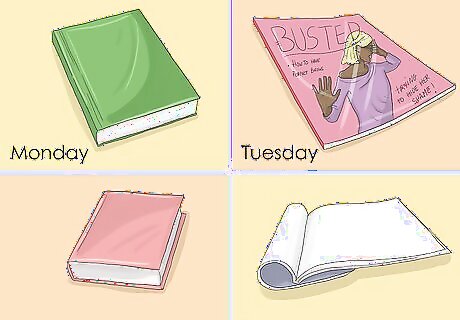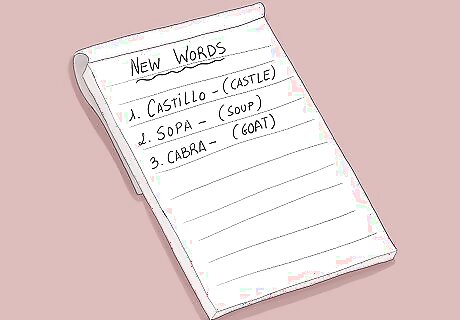
views
Improving Your Listening Skills

Listen to native speakers in natural contexts as much as possible. If you can't find live native speakers to eavesdrop on, watch movies and television shows in that language, or listen to books on tape or music in that language.

Focus on the unique sounds of the language, including the inflection patterns.
Improving Your Speaking Skills

Practice speaking every day. Try to learn new words and phrases every day. It is also crucial to frequently practice the earlier words you have learned, in addition to newer words. If possible, practice with native speakers, and encourage them to correct you.

Practice the sounds in the language which are most difficult for non-native speakers (for example "ra" and "tsu" in Japanese).

Record yourself speaking, then play it back and compare your inflection and pronunciation to that of native speakers.

Think in the language as much as possible, instead of thinking in your native language and then translating.

Speak as native speakers usually are doing, using idioms and linguistic shortcuts, instead of imitating a textbook, which is often excessively formal and repetitive.

Study the grammar. Grammar books try to explain the rules of the language. The sentence 'This that same is' consists of English words, but isn't grammatically correct. Make strong efforts to improve and remember specific grammar rules, so as to avoid incomprehensibility or vagueness to native speakers. 'Thinking' in the other language will also become easier and more frequent. People who speak only one language often assume that the rules of their own language apply to all languages, or that these rules are almost the same everywhere. This is not the case at all. Learning a language requires more effort and commitment than just learning lots of foreign words. Crash courses often try to play down the importance of studying the grammar. Attempt to opt for a foreign language class, where the teacher may be more adept in helping you better understand grammar rules on a personal and more efficient level.
Improving Your Reading Skills

Read books, magazine articles, and other "real life" material whenever possible. Based on vocabulary you have learnt, attempt to translate or at the very least, get a gist of the contents' meaning or aim.

Read some material in the language every day.

Make a list of new words as you come across them. Guess the meaning based on the context, visual or auditorial clues before looking them up in a dictionary.
Improving Your Writing Skills

Write something in the language every day. This could range from a short sentence summing up your day, to a full-page diary entry or article.

Imitate the words of what you've read.

Study the literary conventions of the language thoroughly. Sometimes the written version of the language is radically different than the spoken version.

















Comments
0 comment